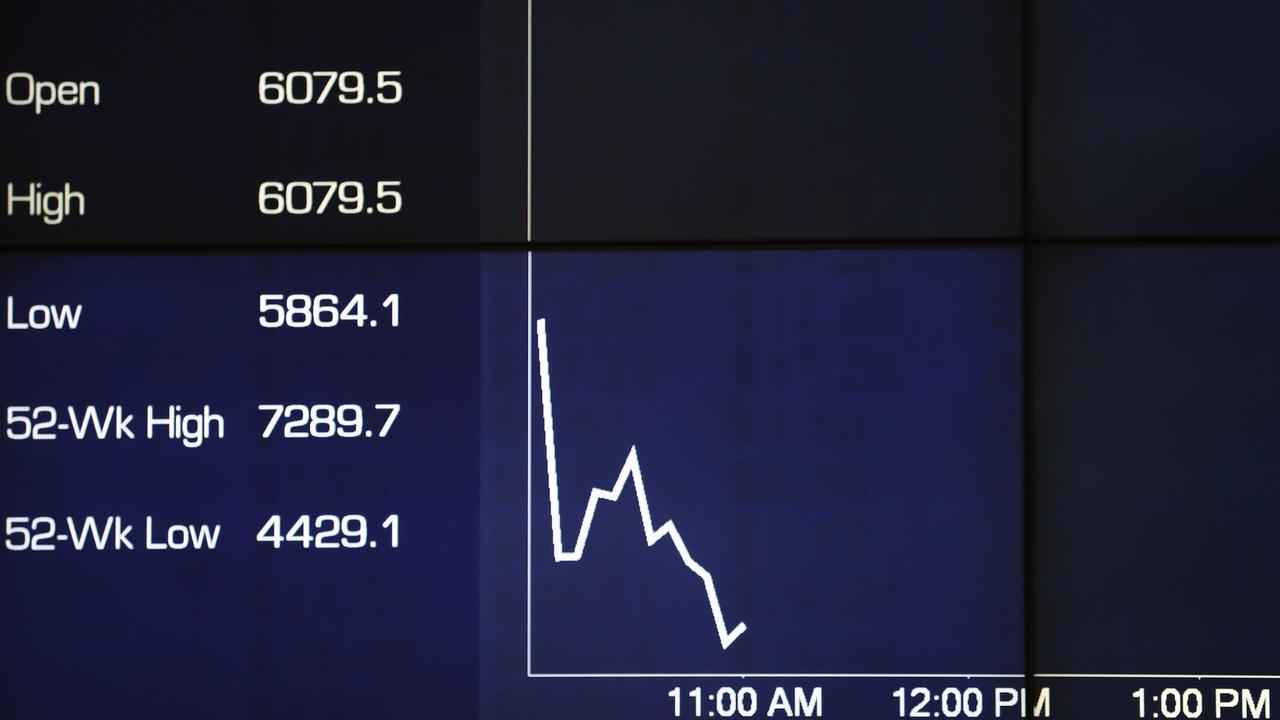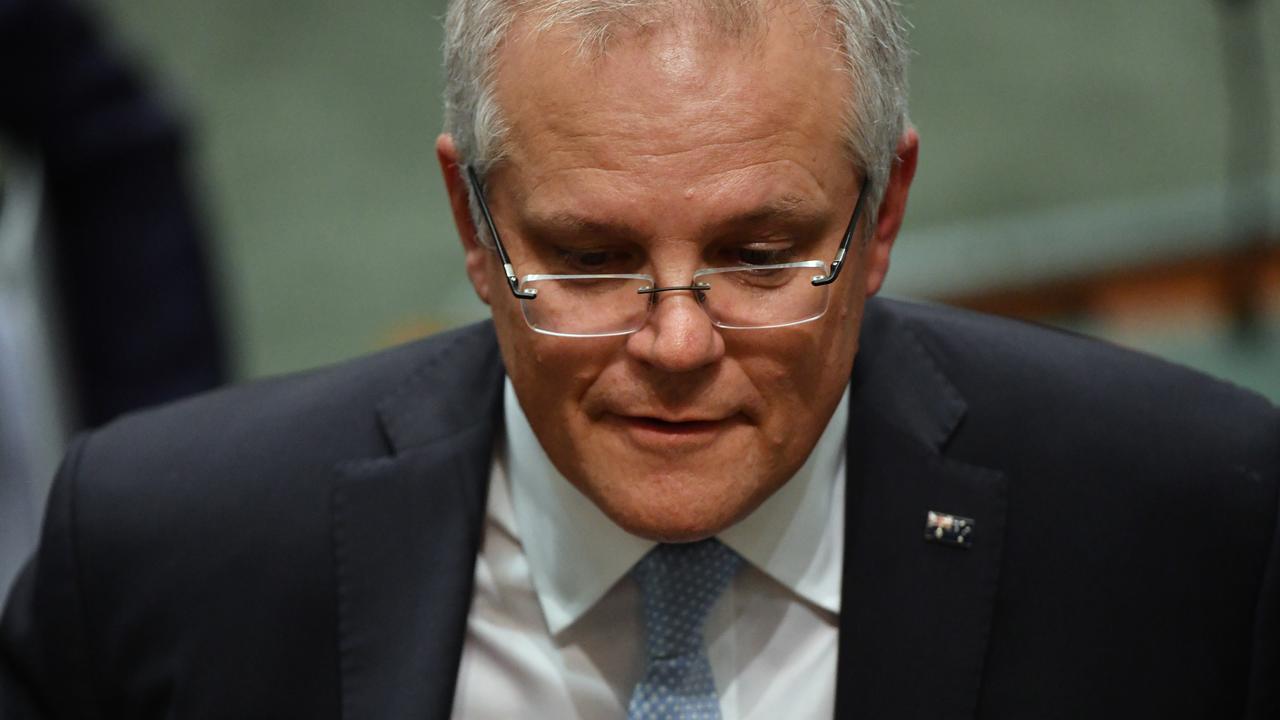Scott Morrison predicts ‘record’ downturn for the next two years
Scott Morrison says Australia is in for a very painful couple of years and it could take up to five years to get back to where we were before Covid.
Prime Minister Scott Morrison says he expects Australia to suffer “record deficit this year and next” and warned it could take up to five years for the economy to recover.
He said that, in April alone, the country lost the equivalent of 30 months of job growth.
“That is why we have a plan to lift that growth. Not just for the next few months, not for now, but the next five years,” he said. “We need to lift our economic growth rate by more than one percentage point above trend, to beat the expected pre-covid GDP position by 2025.”
He said Australia must be careful not to spend too much.
“There will always be a case made for spending more and spending for longer and there are plenty of people who are happy to make that case,” he said. “But it is not a wise nor responsible course.”

Instead he is again pushing for all sectors of the economy to work together to change existing systems to speed up infrastructure projects and drag the country out of recession.
In an address to CEDA’s State of the Nation conference in Canberra on Monday, Mr Morrison pushed his JobMaker scheme, urging a modernisation of how Australia approaches the economy.
Mr Morrison said joint assessment teams would work on accelerating the projects worth more than $72 billion in public and private investment, and supporting more than 66,000 direct and indirect jobs.
“Our number one priority is getting people back into jobs, and they need to be real, productive jobs. Jobs that produce goods and services that people want,” he said.
He further addressed two components of the JobMaker plan, first announced last month – infrastructure and major project investment, and deregulation.
WHAT IS THE JOBMAKER PLAN?
Under the JobMaker plan, five working groups made up of government, unions and business groups, will look at industrial relations reforms designed to help coronavirus recovery.
RELATED: What’s in the PM’s new JobMaker plan

They will review awards, enterprise bargaining agreements, casual work, union and employer misconduct and greenfields – agreements that set flat wages and conditions throughout the lifetime of a construction project.
It’s part of the Government’s drive to end as quickly as possible the first recession in 29 years, blamed mostly on the restrictions forced by the COVID-19 pandemic.
Mr Morrison said the Government has already committed nearly $180 billion on infrastructure over the next decade, with more than half allocated across the four years of the forward estimates.
He announces a further $1.5 billion to immediately start work on small priority projects identified by the states and territories.
WHERE WILL THE MONEY BE SPENT?
These “shovel-ready” projects include the inland rail project from Melbourne to Brisbane; the Marinus undersea electricity link between Tasmania and Victoria; the Olympic Dam extension in South Australia; emergency town water projects in NSW; and road, rail and iron ore projects in Western Australia.
Further announcements on specific projects will be made soon. But he will also urge a rethink of deregulation issues.
It’s going to be a long, tough road out of this crisis but Australia is doing better than many other countries and we’re heading in the right direction. Our government is going to continue to do everything it can to ensure Australia bounces back stronger on the other side. https://t.co/bYALUkPfYJ
— Scott Morrison (@ScottMorrisonMP) June 11, 2020
“All levels of government, business and the community must rethink how these systems can better contribute to our recovery from the pandemic,” he said. “We need to bring the same common sense and co-operation we showed fighting COVID-19 to unlocking infrastructure investment in the recovery.”
He said many states had already cut approval times.
“I’ve asked them all to lift their ambition further, and work with us through the national cabinet to make deregulation a focus of Australia’s economic recovery.”
Cities and Urban Infrastructure Minister Alan Tudge said the aim was to get big projects moving quickly, which would include putting more resources upfront in the assessment process and making the process parallel rather than sequential.
He said the states were “100 per cent on board wanting to get these projects done fast.” “So many of those larger scale projects can take three to four years before they actually get going, so we want to reduce that time frame in half,” he told Channel 7’s Sunrise program on Monday.
Treasurer Josh Frydenberg earlier in June confirmed Australia was in a recession, after the economy shrank 0.3 per cent in the March quarter ahead of a much larger fall expected in the current June quarter.
The pandemic could see government debt blow out by $620 billion by the end of the decade, the PBO has found.
Mr Frydenberg will provide a budget update on July 23.



